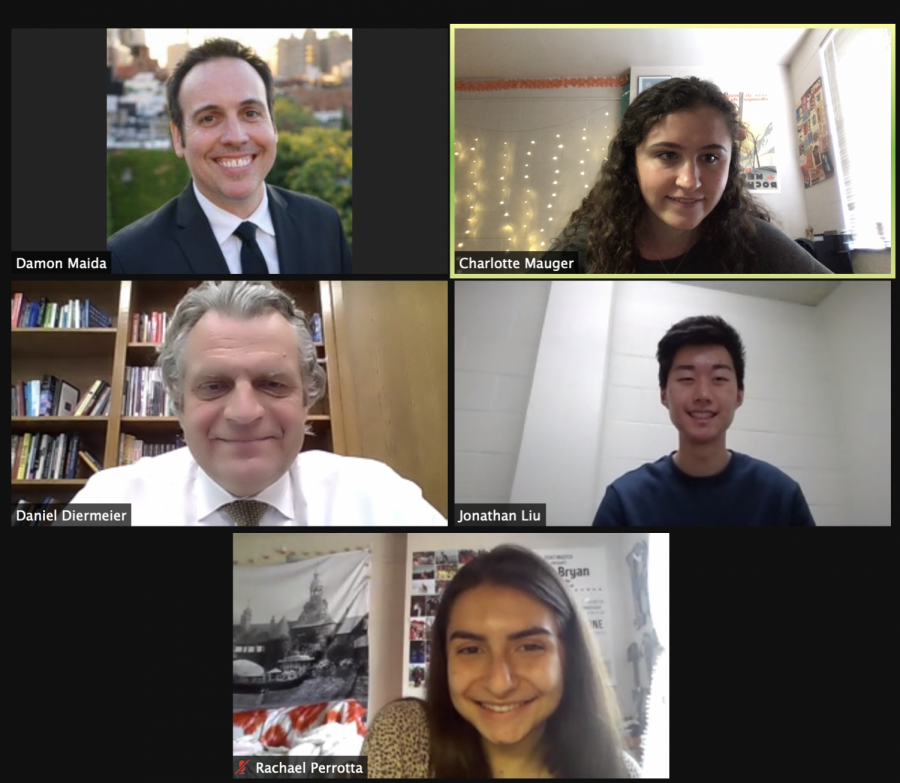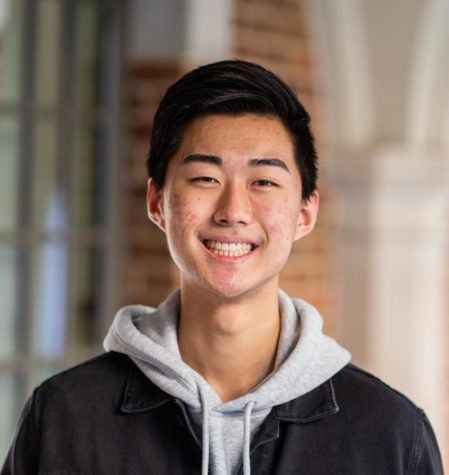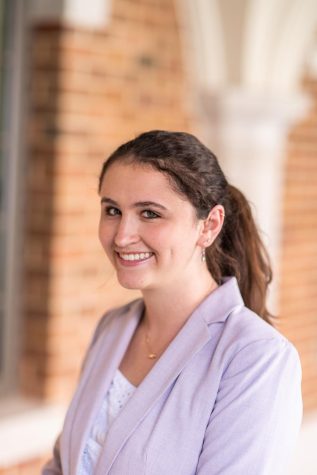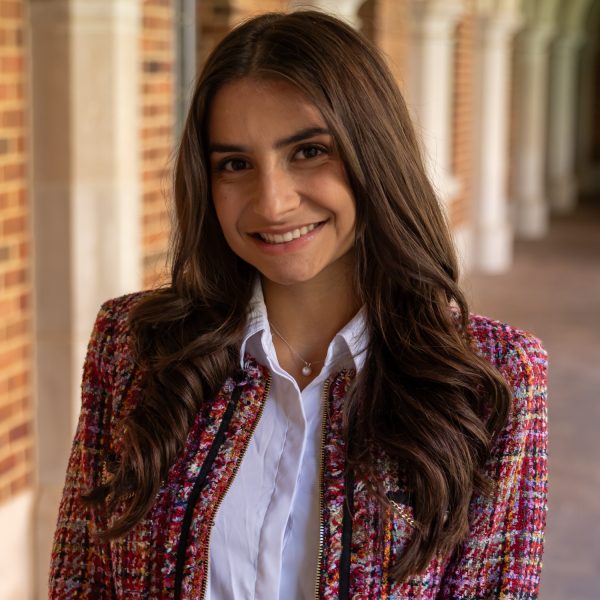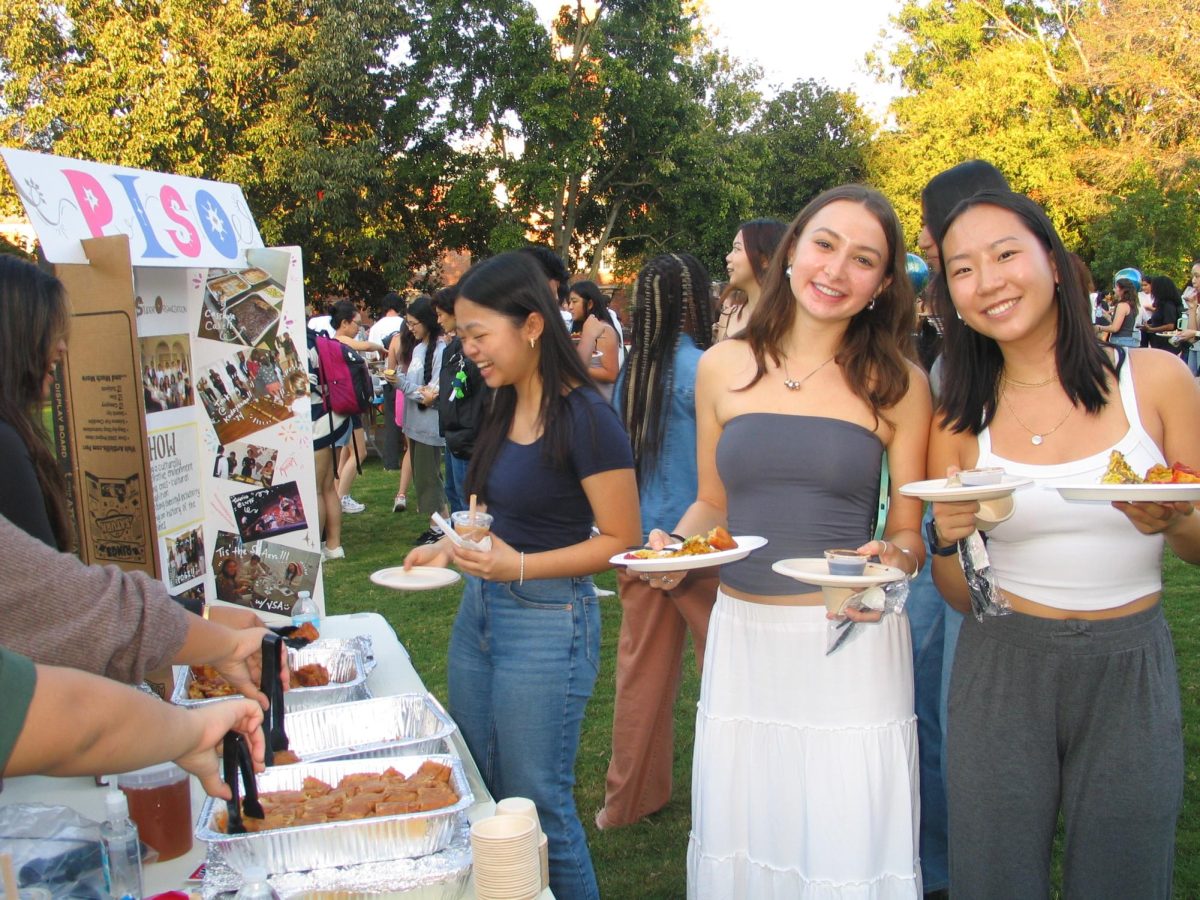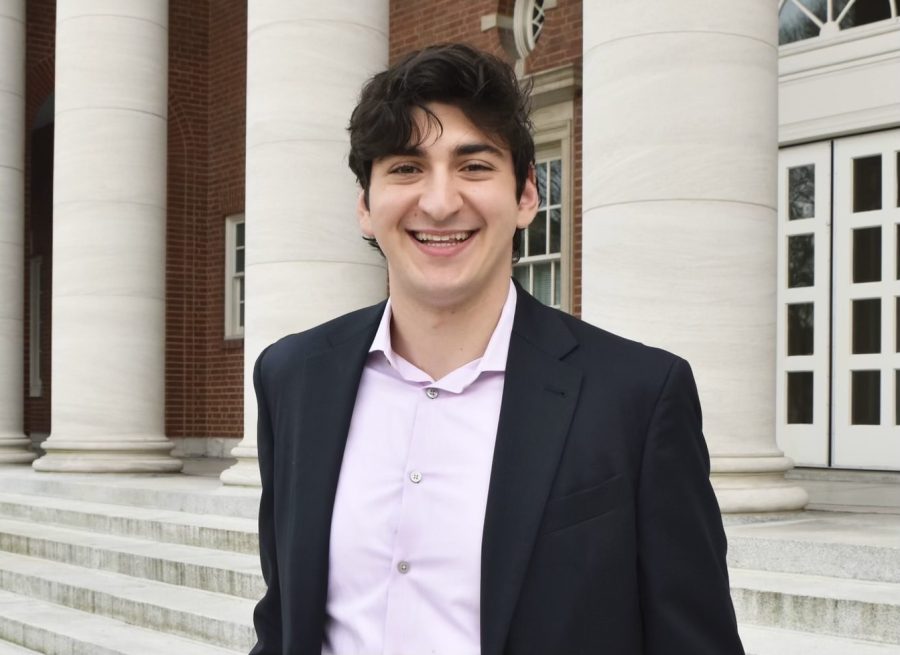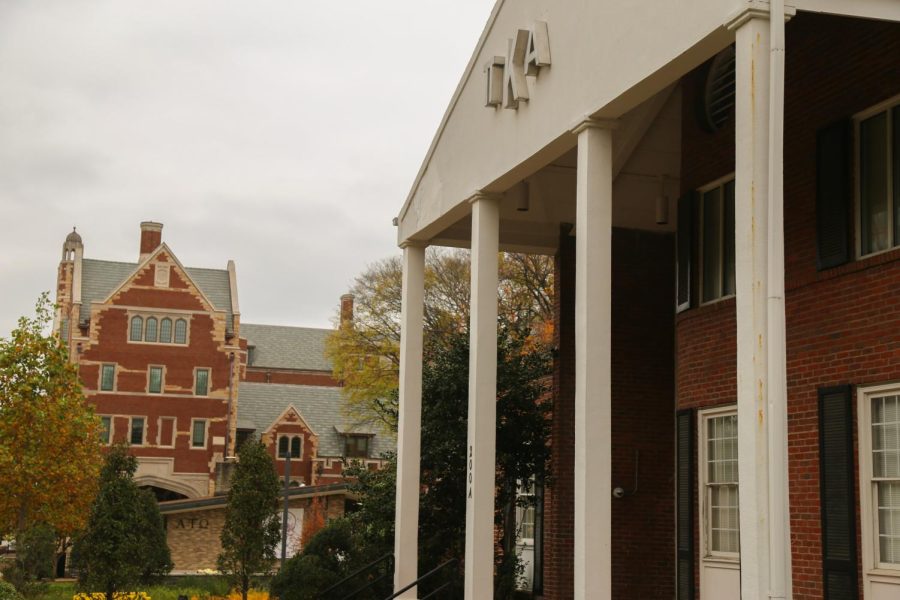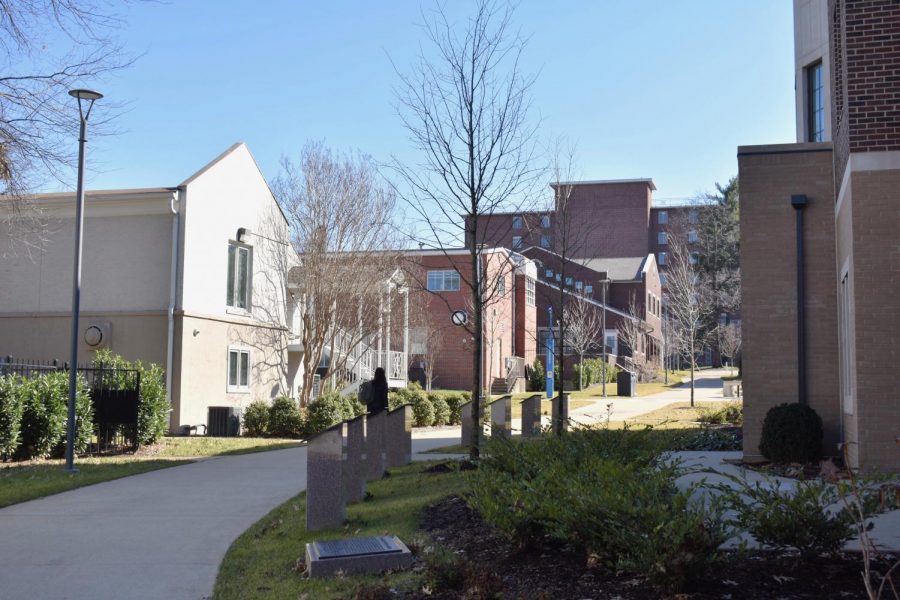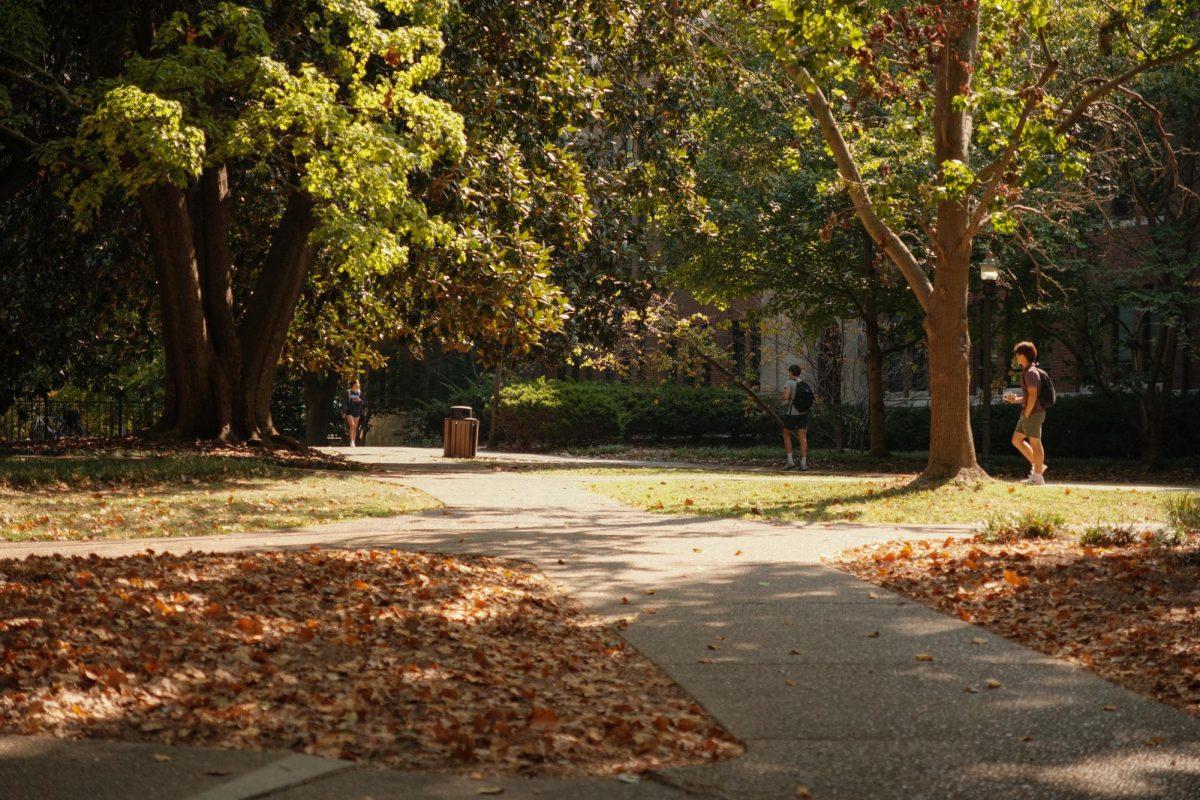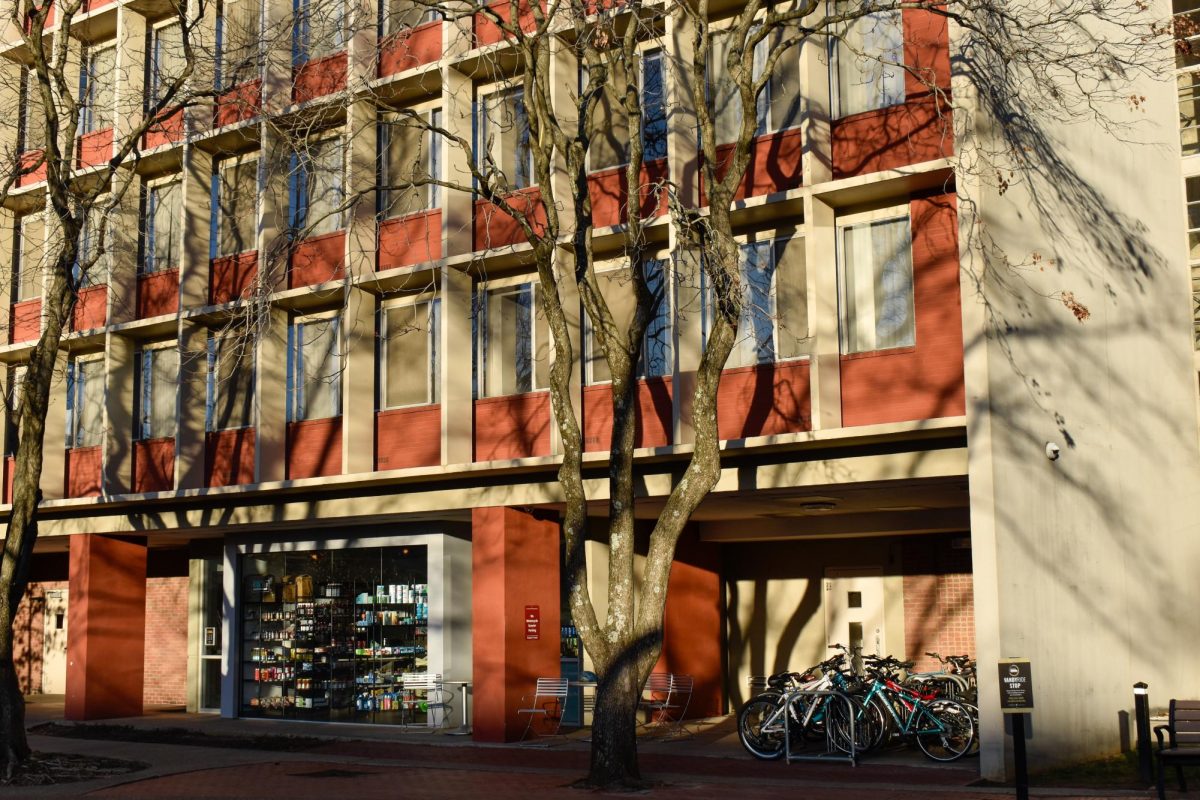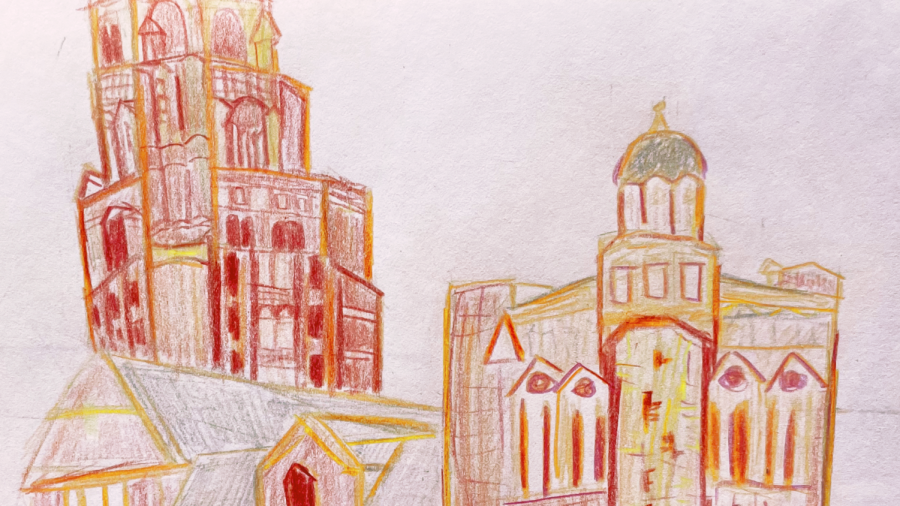Chancellor Daniel Diermeier, who is wrapping up his first year leading Vanderbilt, met with The Hustler to reflect on a historic year in the nation’s history and look ahead to the 2021-22 school year.
During an April 23 Zoom call, Diermeier shared his views on 2021-22 COVID-19 protocols, divestment, the VSG election, construction and nationwide racial conflicts.
Vanderbilt Hustler: Which aspects of the university’s Return to Campus plan do you believe were the most successful this semester, and which aspects posed the greatest challenges?
Chancellor Diermeier: I would say that overall, we’re very happy with how everything went. We were able to invite all our students back to campus—85 percent in the fall, then a larger percentage throughout the year—and we were able to keep COVID-19 rates low. It was a consequence of a rigorous testing regime, good contract tracing done by our School of Nursing and then the ability to quarantine and isolate students. It took an enormous amount of effort by the staff, by the faculty and by you, our students, to be able to make that possible. You may remember that at the beginning of the year, I asked people to step up and make this their proudest moment, and I think we did.
There were many things that turned out not to be true that we were very worried about in the summer. We were very worried about transmission inside classrooms, which didn’t happen. We were very worried about that inside residential colleges, which was very limited. The biggest problem for us has been off-campus gatherings. While we didn’t have the type of large parties that happened at other universities, this has still been a problem. The problem we concerned ourselves about in the beginning was how to keep the virus out, rather than being concerned about our students spreading the virus, so we almost had kind of a little mini bubble. I think that meant we invested a lot in that, but in retrospect, the problem was really what was happening off campus, so if we had to do that again, I think we would think very carefully about how we limit those aspects.
Following the announcement of having a fully in-person next semester and the reinstatement of the residential requirements, students find themselves wondering if campus will be back to “normal” next semester. What changes, if any, from this past year will carry over into next semester, and what legacy will this past year have on Vanderbilt?
Our goal is to be as close to normal as we can. We’re going to work very hard to make that possible. As an example, during the pandemic, many of our peer schools just shut down their athletics programs. The Ivy Leagues basically had no athletic competitions, but we said we have student athletes for whom this is a hugely important part of their life, so we’re going to try everything possible in order for them to be able to compete. Similarly with our musicians, if you are a singer or practice a wind instrument, that poses another range of challenges. We wanted to make those activities possible as much as we could, and that’s the spirit that we’re going to continue in the summer and the next year. Now, things may change and pivot, and we have to just know that, but that’s certainly where we want to be—as much connected to the residential experience that we all love.
Other schools such as Rutgers, Northeastern and Brown have announced that they will require students to be vaccinated before the start of the Fall 2021 semester. Will Vanderbilt be requiring vaccinations as well?
We will make the decision when we need to, but not earlier. One important consideration for us is that the vaccines at this point are still under emergency authorization, and we’d like to wait until the FDA makes a decision on approving these vaccines and under what conditions, as we just saw recent news about the Johnson & Johnson vaccine. We’d like to wait until the regulatory process and the proper drug approval process has run its course, and then we will make our decision.
Students have voiced a number of concerns over the events that unfolded during the 2021 VSG Student Body General Election. Do you have any comments about the election, the current state of our student government and how the administration plans to engage with them moving forward?
Student organizations at Vanderbilt are led by students, and that’s the point. It’s a very important part of how we think about education because it provides our students with important leadership opportunities, and thus, they need to be governed by students. Having said that, every student at Vanderbilt, no matter what organization, is held to the same standards of conduct. In this particular case, there were a number of troubling developments to the student elections, and we’re working with students to address those—we address them like we would do in any other case through student accountability processes and holding conversations.
At the same time, we are highly committed that our students run their student organizations by themselves. We have received several formal complaints related to the student government election, and so our Office of Equal Opportunity and Access is investigating these. We will take appropriate action based on the outcomes of the investigations, as we will do every time we receive a complaint.
During the election, a North/South-themed party hosted by Sigma Chi was reported upon and inspired more dialogue surrounding the Abolish Greek Life (AGL) movement. How will Vanderbilt address that event and general student concerns regarding issues of racism and sexism in the Greek system?
Fraternities and sororities are opportunities for our students to come together, develop themselves as leaders and deal with the conflicts that are a part of any type of organization. Now, if there are issues with students or student organizations engaged in conduct that is not consistent with our guidance with respect to student conduct, we will investigate them. That’s what we have done consistently, and we will do it whether it has to do with student elections or whether it has to do with Greek life. They are student-run and student-governed, but we expect our students to be consistent with the standards and guidelines that we expect from the public.
You released a statement following the rise in hate crimes against the AAPI community; can you describe the resources in place for students struggling in the wake of these events and share your general sentiments?
This is a very difficult period for the members of our AAPI community, whether they are Asian American or international students, because of the murder of six Asian women in Atlanta last month. But it’s not the only case—there are ongoing incidents of racist behavior and violence toward members of these communities, and that is deeply troubling to us, as an opposition to Vanderbilt’s core values of equity, diversity and inclusion. We will not tolerate that.
We must ask ourselves how we can support our students, faculty and staff in these difficult times, and there are a variety of existing support structures that were outlined in the letter. Yesterday, I met with students, and I met with faculty before to have ongoing discussions on what is available in addition to what we’ve been doing so far. I am deeply troubled by this personally, and we want to make sure that we provide an inclusive and supportive environment for our students, faculty and staff. That’s a process, and it’s a process where I think as a country, we have been shocked and rattled. Here at Vanderbilt, we want to ask ourselves to understand these issues in more detail and take the appropriate actions that would address them.
Students have called for a respite following the release of the verdict in the trial of Derek Chauvin for the murder of George Floyd. What is your message to them, and what is the university doing to support students feeling this way?
The trial outcome has highlighted that for decades and centuries, people of color have been singled out, harassed, arrested, attacked and in some cases, killed. We cannot look away from that. We need to understand that we need to address that in how we just did in our statement. We need to ask ourselves what we can do in order to move forward, and we’ve done an enormous amount of that during the year—and we’ll continue to do more. It’s a very difficult problem, and it’s an urgent problem, so we’re going to keep working on it and keep being engaged.
The University of California school system as well as the University of Michigan, Georgetown and Cornell have made steps to divest from fossil fuels over the course of the past year. What is your reaction to their divestment and will Vanderbilt do the same?
This is a question of climate change and more generally a question of sustainability. It’s one of the most important policy challenges that we face today in our generation. The way we have engaged with that is through innovative projects that create new approaches in dramatically reducing our carbon footprint, and we will continue to do that. That’s the mission of our research university because what it allows us to do is to demonstrate through research and innovation that there’s a particular solution that allows you to decrease your carbon footprint, if you so choose, and how to do it. And we did this for example, through our partnership with the Tennessee Valley Authority that allowed us to have all our electricity be carbon neutral within the next year. That became a model for others and the city of Nashville, which has now done the same thing. I think that’s exactly the role for universities, research and education—to provide innovative solutions for others.
Divestment is a totally different issue, and other universities can speak for themselves, but the way we’ve been thinking about it is that it’s an essential role for universities to be the place where our students and our faculty can debate and discuss controversial policy issues so that you can take positions to explore various different possible solutions to climate change. Another way to put this is that our goal as a university should not be to advocate for a particular policy solution, but it should be to provide a platform where our students and our faculty can discuss particular tools, and then advocate for them. On the specific issue of divestment, the purpose of the endowment is not to be an advocacy tool—the purpose of the endowment is to support our students and our faculty. Now, there is an enormous amount of debate in the policy community whether divestment is a good idea or not. That is a good and lively debate, and it’s a good debate to have, but we as a university should not take a position on that. We’re going to adopt a stance of principled neutrality on that, so students and faculty can debate the whole issue on whether providing capital to oil and gas companies is a good idea, or whether it would be better to own shares in oil and gas companies and then use shareholder activism in order for them to change that behavior. These are good debates, and I don’t think that universities should foreclose that debate by taking a position on these issues.
What advice would you offer to students facing burnout and Zoom exhaustion heading into the last weeks of the semester and final exams?
Spend as much time as you can outside. I think we’re blessed that we have a warmer climate than some of our peers and can be outside on this beautiful campus, seeing the leaves and the flowers blossoming. There’s great research in psychology that being outside in green spaces has a tremendous benefit for your overall well-being. So do that—try to unwind as much as you can. The other thing that I’m always super impressed by is the inventiveness of our students. You may have heard that we had an opera performance outside recently, and so the more you can get away from your computer from time to time to be outside and exercise, you should participate in these events.
Carmichael Towers will be torn down this summer and Residential College B will soon be underway. What is the status of other infrastructure or construction projects on campus, especially in the wake of student concerns regarding accessibility and other facilities?
The demolition of Carmichael Towers was paused previously, and it really served us well during COVID-19, but we’re going to continue with the plan. We will accelerate our construction plans for residential colleges because we think that they are wonderful. They’re a wonderful model for undergraduate education, and we’re also going to look at what we want to do on the research side. You heard about the announcement on athletics, so that’s going to be the way we build wealth. We’re also starting to build the graduate student housing that’s moving forward. I think that we just kind of continue and accelerate some of the projects that we wanted to do to further support our students and our faculty.
Reflecting on your first year serving as Vanderbilt’s chancellor, what accomplishment are you most proud of? What is your favorite part of the Vanderbilt community?
I hear from a lot of friends and former colleagues sending me notes during the year that have said that they are so sorry I had to take over this role in a new university during this pandemic. My response is that they’ve got this all wrong. If you have the privilege to serve and lead in a distinguished institution like Vanderbilt, you want to do it during the time when your leadership really makes a difference.
I sometimes joke that if you’re prime minister of Britain, you want to be prime minister from 1940-45, not from 1950-55—but be careful what you wish for. This was the most challenging year for higher education, and to give you a point of comparison, we lost 650,000 jobs in higher education—that’s one in eight jobs. Then, of course, there were all the public health challenges that we had to deal with, and what I was most proud of was how we came together as a community. I am so proud of how we as a community came together and did this. I’m so touched by seeing our students’ resilience moving forward. I’m amazed by the staff and their dedication, many of them working weeks and months at a time, 16 hours a day without taking a break. We are one community. We take care of each other, and that also allows us to work through tough and difficult challenges.
Similar to our previous interview, we are going to ask you a fast five questions. Give us the first answer that pops into your head.
Who is the best teacher you’ve ever had? What made them great?
The best teacher I’ve ever had was from a fellowship from the German government. He was an instructor that challenged us to think for ourselves.
What is your favorite spot on campus?
My favorite spot on campus is really to just kind of walk outside and see the beautiful trees. Since everything has been so restricted, I haven’t found a place where I can sit down and really enjoy things.
If you could time travel, what period would you visit?
Ancient Athens, right around the time when Plato was around.
What’s your favorite season of the year, and why?
Late spring, because I think it reminds us of the importance of growth and renewal in a particular way.
What was your dream job as a child?
My first dream job was to be a paleontologist, like many kids, but I didn’t know that it was called paleontology. I thought I wanted to be an archaeologist, so my parents got me archaeology books, rather than dinosaur books, and so I fell in love with archaeology and wanted to be an archaeologist.

